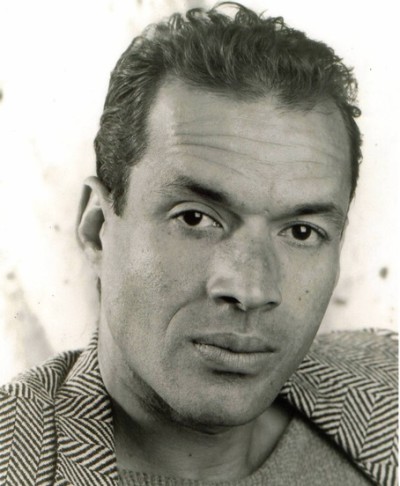Franklyn Seales (Franklyn Vincent Ellison Seales)

Franklyn Vincent Ellison Seales was born on July 15, 1952 in Calliaqua to Francis Seales, a merchant seaman and government employee, and Olive Seales (nee Allen), a homemaker. He was the fifth eldest of eight siblings and second eldest son. Seales was of English, Scottish, African, Portuguese and Native Caribbean descent. He grew up among a colonial gathering of British officers–men “with their little sticks and stiff mustaches,” Seales would say. He and his family left the West Indies in 1960 and settled in New York City, where he met his eventual brother-in-law, Jean Dorsinville. Seales attended Lincoln High School in Brooklyn. Franklyn Seales originally intended to study at the Pratt Institute to pursue a career in art. However, in the early 1970s, Seales agreed to accompany an aspiring-actress friend to an audition at the Juilliard School. As Seales helped his friend run through the famous Romeo and Juliet balcony scene, actor/producer John Houseman (then director and founder of the school’s drama division) began to notice him. Houseman offered Seales a four-year Juilliard scholarship. According to Dorsinville, Seales’s roommate at Juilliard was Robin Williams. Dorsinville also claims Seales was the first and so far the only student and graduate of Julliard from St. Vincent. Seales also studied at Houseman’s Acting Company. Seales made his breakthrough in 1978 with the PBS drama, Trial of the Moke, portraying Lt. Henry O. Flipper, the first African-American graduate of West Point. He then went on to appear in The Onion Field (1979), in which he portrayed real-life convicted cop killer Jimmy Lee (Youngblood) Smith. That same year, he had a minor role in Star Trek: The Motion Picture. He also appeared in the 1981 film, Southern Comfort, in which he portrayed Rifleman Cleotis Simms.
He came to do other television and became a regular on Silver Spoons (which also starred Houseman), a situation comedy of the early 1980s in which he portrayed Dexter Stuffins from 1982 to 1986. He also performed roles in Hill Street Blues and Amen. In Los Angeles, Seales joined L.A. Theatre Works and was seen in such unconventional productions as Conversation at Night With a Despised Character, in which Los Angeles Times critic Lawrence Christon found him “one of America’s most compelling stage actors.” He was the Last Person on Earth in Sade-Sack, or How to Live After the Asprocalisp, and he starred in Bertolt Brecht’s The Caucasian Chalk Circle. Working primarily in the experimental Equity Waiver theaters of L.A.’s Westside, Seales was seen in No Place to Be Somebody, as “Hamlet” in the Charles Marowitz drama, in Babbitt and Oh Dad Poor Dad. Despite his talent some of the roles he most wanted sometimes eluded him. “Either I’m not black enough or I look too Hispanic or Cuban,” he said in one of his last interviews in 1988. “I have to be hired by someone who knows my work.” His last major triumph was at the Mark Taper Forum in October 1988, in Nothing Sacred, an adaptation of Ivan Turgenev’s novel Fathers and Sons. Along with acting, Seales was also a painter, according to Dorsinville.
According to Walter Hill, the director of Southern Comfort, Franklyn Seales was openly gay. According to his sister, Deborah Richardson, Seales had been unable to work regularly for the last several months of his life. On May 14, 1990, Seales died at the age of 37 from complications of AIDS at his family’s home in Brooklyn. He was survived by his mother, his three brothers, and three sisters. In 2011, Franklyn V.E. Seales: Life of An Artist, a biography written by Dorsinville, was published.
Born
- July, 15, 1952
- Calliaqua, St. Vincent, West Indies
Died
- May, 14, 1990
- USA
- New York, New York
Cause of Death
- complications from AIDS
Other
- Cremated

